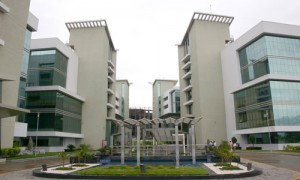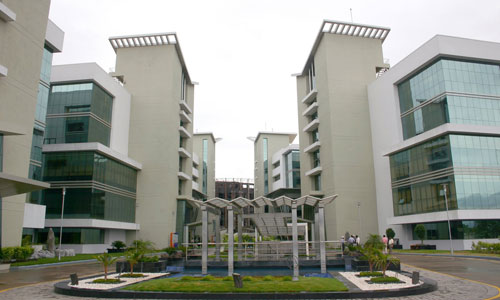 Indian commercial property market has lost momentum in Q3 with the capital values turning negative for the first time since 2009. According to the latest RICS India Commercial Property Survey, although the economy has continued to grow steadily, output growth has seen a decline through the course of the year. This aspect coupled with interest rates continuing on their upward trajectory has affected market sentiment, with capital values turning negative for the first time since 2009 and modest deterioration in markets expected even in the coming quarters.
Indian commercial property market has lost momentum in Q3 with the capital values turning negative for the first time since 2009. According to the latest RICS India Commercial Property Survey, although the economy has continued to grow steadily, output growth has seen a decline through the course of the year. This aspect coupled with interest rates continuing on their upward trajectory has affected market sentiment, with capital values turning negative for the first time since 2009 and modest deterioration in markets expected even in the coming quarters.
Additionally with the current level of uncertainty in global financial markets affecting the commercial real estate sector in many economies, especially with the intensification of the euro area crisis, India has also dropped 6 places to be ranked at 19, in relation to its Q4 rental value expectations as a consequence of available space rising at a faster rate and a slack in occupier demand witnessed over the previous quarter.
Commenting on the sentiment with respect to global commercial property, Simon Rubinsohn, RICS Chief Economist, said: “While certainly not heartening, it is also not especially surprising that this quarter’s survey results reflect the impact of today’s softer macro-economic picture. The global real estate market flourishes when economic conditions are stable and strong. At the moment we are dealing not only with considerable levels of uncertainty in financial markets around the world, but also an intensification of the euro area crisis and the threat of a recession in the US. Confidence has definitely taken a knock. That said, there remain key areas of resilience – China, Brazil and Russia – and we have seen positive momentum in several other countries as well, Japan most notably. Although we doubt that the developing economies can completely insulate themselves from the challenges facing the West, our suspicion is they will continue to outperform and this will be reflected in real estate markets.”
Commenting on the Indian commercial property market, Anshuman Magazine, Chairman & MD, CBRE South Asia & Chairman, RICS South Asia Board said, “The slowdown in office space take up is indicative of the global corporate sector sentiment affecting the Indian office property market. It is also indicative of the continuing volatility in the financial markets within India. This decline in absorption levels is further reflected in the slowdown in rental growth across key micro markets in the country. Over the next few months I expect supply dynamics will dictate the rental movement especially in the CBD.”
In India, investor interest is also seeing a slowdown on account of the lower absorption of new developments and the disparity between investment returns and capital values. With the investment outlook being more cautious than was the case earlier, capital values have already seen a decline and dropped 9 places to a global ranking of 21, turning negative for the first time since 2009.
However, Ramesh Nair MRICS, Jones Long LaSalle said, “The oversupply situation may not be as bad as it was expected, given that the self correction phase has started with developers slowing down their construction and changing usage of their projects expecting a market correction. Many developers, especially in cities such as Mumbai, are today offering smaller units of space (even as small as 500-1000 square feet) in Grade A buildings. This is in sharp contrast to the scenario a few years back, where only much larger units were available. With banks and institutional lenders becoming more cautious about lending to the commercial real estate sector, demand for capital from private equity and NBFC funding has increased. Also the risk appetite of private equity investors has reduced further with preference for core and core-plus type investments in proximity to the city limits.”
Aman Kapoor MRICS, Emaar MGF Land Limited said, “Demand in office has slowed down as many companies have postponed expansion plans due to uncertain global conditions.”
Ravi Ahuja MRICS, Cushman & Wakefield said, “Cash strapped and highly leveraged developers are looking to provide significant discounts in pricing to investments that can buy large volumes of space. The developers seem to be better off hiving stock than retaining it at approx. 18 – 20% funding costs. This offers investors with opportunities to acquire space from short term rental yield generation and long term capital appreciation perspectives.”
Surendra Hiranandani FRICS, Hiranandani Constructions said, “The office occupiers market is stable in the Mumbai region. There are few consolidation requirements in the market. Capacity expansion by IT/ITES clients is not as aggressive as it is used to be. Large occupiers are using their capacities more efficiently. We expect the market to continue to trade in the current levels for next two-three quarters. Grade A space in pockets has vacancy levels as low as 1%. Few areas such as lower Parel are witnessing intense competition with handful ready supply, thereby putting pressure on rentals.”





